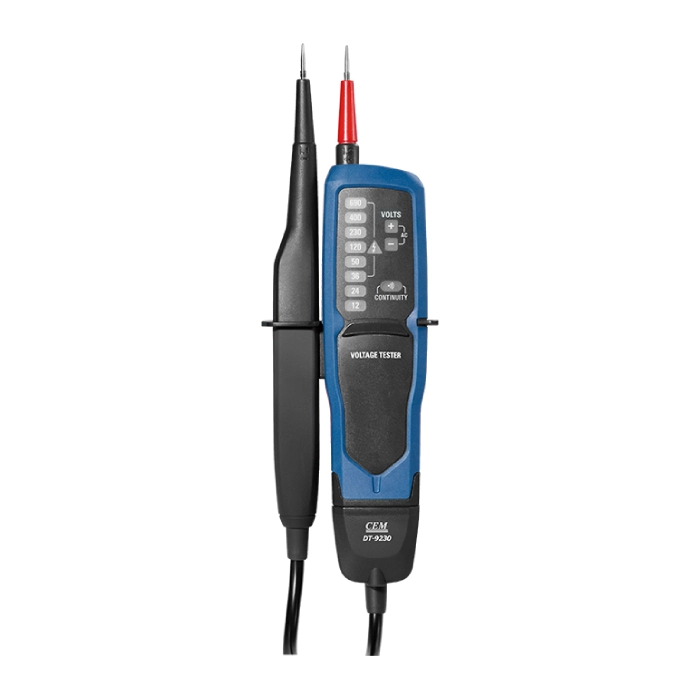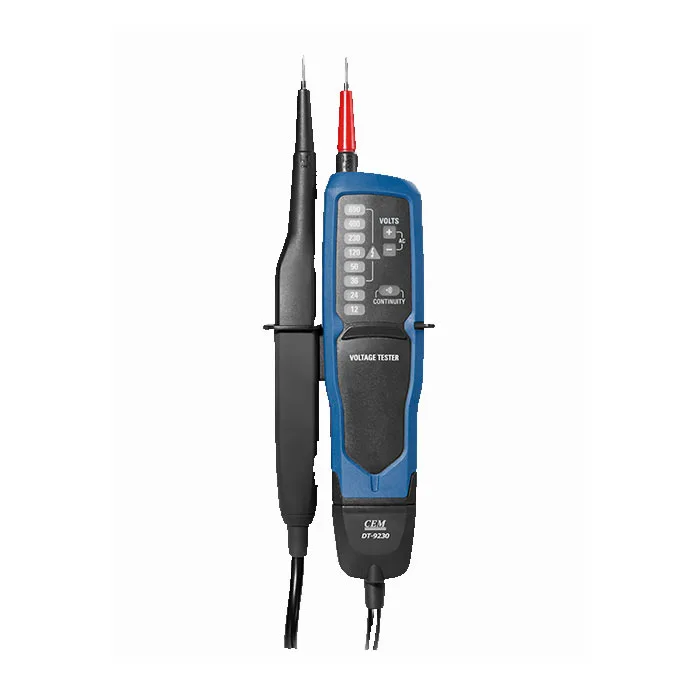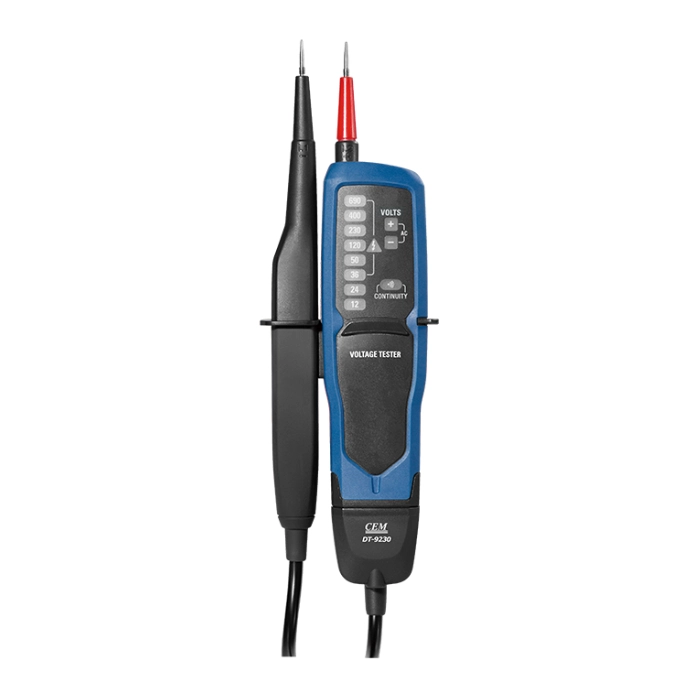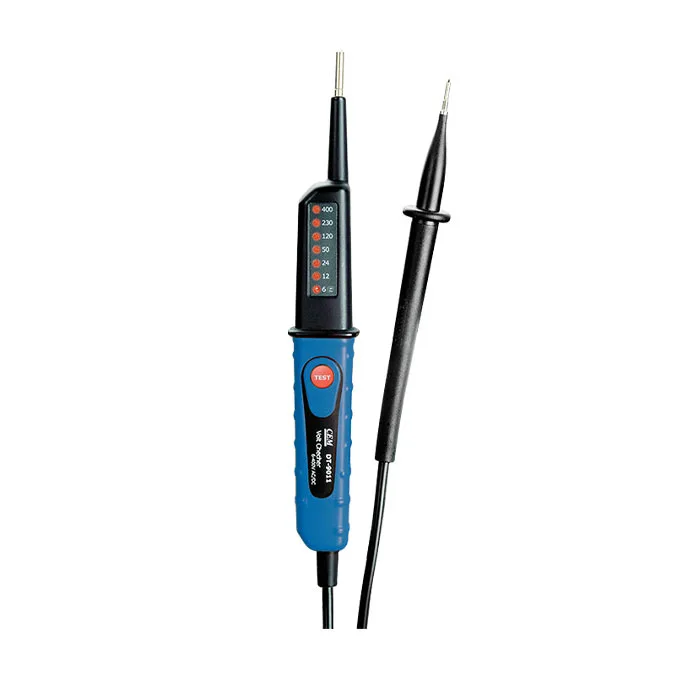Showing all 14 resultsSorted by price: high to low
Electrical Tester
Safety First: Protect Lives and Property
Electrical testers are essential for identifying faulty wiring and detecting live currents before issues escalate into dangerous accidents like electrical shocks, fires, or equipment failure. By instantly detecting voltage irregularities, these tools provide an added layer of safety for electricians, technicians, and DIY users. Whether you’re troubleshooting a household appliance or inspecting industrial wiring, an electrical tester ensures you can work confidently without risking personal injury or damage to your property.
Why You Need an Electrical Tester: A Closer Look
Simplify Diagnostics: Save Time and Effort
Electrical testers streamline troubleshooting, allowing you to quickly locate issues in circuits and equipment. Tools like the electric tester meter provide instant voltage readings, helping you diagnose problems efficiently. A non-contact electrical tester enhances this convenience by detecting live wires without physical contact, reducing the need for complex setups or additional safety precautions. With these tools, you can identify faults faster, minimize downtime, and keep your projects on track.
Versatile Use: Tailored for Every Scenario
Electrical testers cater to diverse applications, making them invaluable for various tasks.
- Residential Needs: Verify the safety of household outlets, light switches, and appliances.
- Commercial Settings: Inspect office wiring and ensure the integrity of critical systems.
- Industrial Environments: Perform high-level diagnostics on complex machinery and control systems.
From basic continuity checks to advanced electrical safety analysis, these tools adapt seamlessly to the demands of residential, commercial, and industrial settings, offering unmatched versatility for users at all levels.
Investing in an electrical tester means equipping yourself with a tool that prioritizes safety, boosts efficiency, and supports a wide range of applications. Whether you're a seasoned professional or just starting, having the right electrical tester at your disposal can transform your work, making it faster, safer, and more reliable.
Top Benefits of Electrical Testers
- No-Contact Convenience: Modern no contact electrical testers allow you to detect voltage without physical interaction, enhancing safety.
- Automotive Applications: Specialized tools like the automotive electrical tester streamline diagnostics for vehicles, saving time and effort.
- Comprehensive Testing: From continuity checks to voltage detection, these devices offer all-in-one solutions for electricians.
Applications That Suit Every Need
- Home Maintenance: Ensure your household wiring and appliances function safely.
- Professional Work: Enhance efficiency and accuracy in commercial and industrial environments.
- Automotive Repairs: Identify faults in vehicle electrical systems with dedicated testers.
Types of electrical testers
voltage testers are designed and supplied in different types, each of which is suitable for specific applications. Below we introduce several types ofelectrical testers and their features:
Voltage and Continuity Testers
Voltage and continuity testers are used for quick and accurate measurement of voltage and checking the continuity of circuits. These devices typically feature a digital display and measurement probes, making them easy and safe to use.
How to Choose the Right Electrical Tester
Consider these factors when selecting an electrical tester:
- Purpose: Define your testing needs—voltage detection, continuity testing, or automotive diagnostics.
- Features: Look for safety enhancements, such as no-contact technology or integrated safety analyzers.
- Brand Reputation: Trust renowned names like Hioki for dependable performance.
- Ease of Use: Opt for testers with intuitive designs, ensuring smooth operation even for beginners.
Non-Contact Voltage Testers
Non-contact voltage testers allow for the detection of voltage without the need for direct contact with wires or components. These devices are suitable for the quick and safe identification of voltage presence in wires and electrical devices, and they are particularly valued for their small size and easy portability.
















 Bench Multimeters
Bench Multimeters